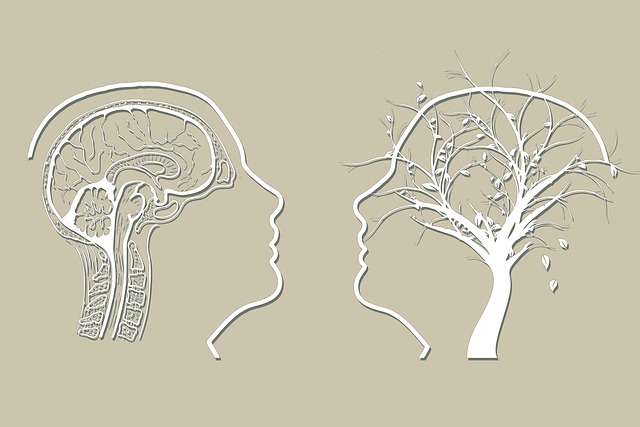Mindfulness meditation, popularized by initiatives like Aurora Suicide Prevention Therapy (ASPT), is an ancient practice that enhances emotional well-being and mental clarity. By focusing on present-moment awareness, individuals can improve coping strategies, reduce stress, and foster self-connection. ASPT integrates mindfulness into therapy for at-risk individuals and mental health professionals, promoting stigma reduction and effective treatment outcomes. Regular meditation, starting with small steps like 5-10 minutes daily, is accessible through apps or community outreach programs, contributing to a balanced and fulfilling life.
Unwind your mind and embrace a holistic approach to mental well-being with mindfulness meditation. This ancient practice, grounded in the present moment, offers a sanctuary from life’s stresses. Our guide delves into ‘Understanding Mindfulness Meditation’ as a cornerstone for mental health, followed by practical tips to seamlessly integrate this practice into daily routines. Furthermore, explore the compelling role of mindfulness in Aurora Suicide Prevention Therapy, where it serves as a transformative tool for healing and recovery.
- Understanding Mindfulness Meditation: A Foundation for Mental Well-being
- Practical Tips for Incorporating Mindfulness into Daily Routine
- The Role of Mindfulness in Aurora Suicide Prevention Therapy
Understanding Mindfulness Meditation: A Foundation for Mental Well-being

Mindfulness meditation is a practice that cultivates present-moment awareness and non-judgmental attention to thoughts and feelings. It involves observing one’s experiences without getting caught up in them, fostering emotional regulation and mental clarity. This ancient technique has gained modern prominence as a powerful tool for enhancing overall well-being, particularly through initiatives like Aurora Suicide Prevention Therapy. By integrating mindfulness into daily routines, individuals can develop a deeper understanding of their thoughts and emotions, leading to improved coping strategies and enhanced resilience.
In today’s fast-paced world, prioritizing emotional well-being is more crucial than ever. Healthcare Provider Cultural Competency Training emphasizes the importance of incorporating mindfulness practices into therapeutic approaches. Public Awareness Campaigns Development and Emotional Well-being Promotion Techniques can benefit from cultivating mindfulness on a societal level, encouraging individuals to nurture their mental health through simple yet transformative practices. Mindfulness meditation serves as a foundation for fostering resilience, promoting self-care, and creating a sense of inner peace amidst life’s challenges.
Practical Tips for Incorporating Mindfulness into Daily Routine

Incorporating mindfulness into your daily routine can significantly enhance mental wellness and overall emotional intelligence, making practices like those offered by Aurora Suicide Prevention Therapy invaluable. Start with small, consistent steps to see lasting benefits. Consider setting aside just 5-10 minutes each day for meditation or mindful breathing exercises. These brief periods can be incorporated seamlessly into your morning routine, before work or during a quiet moment in the evening.
For those new to mindfulness, guided meditations available through various apps or online platforms can provide much-needed support. Engaging in community outreach program implementations focused on mental wellness coaching programs development can also foster a supportive environment. Regularly practicing mindfulness not only helps manage stress but promotes a deeper connection with yourself and your surroundings, ultimately contributing to a more balanced and fulfilling life.
The Role of Mindfulness in Aurora Suicide Prevention Therapy

Mindfulness plays a pivotal role in Aurora Suicide Prevention Therapy (ASPT), offering a powerful tool to enhance emotional well-being promotion techniques and support individuals at risk. By focusing on the present moment, mindfulness meditation helps individuals cultivate awareness of their thoughts, emotions, and bodily sensations, enabling them to develop a greater sense of self-control and resilience. This practice is particularly beneficial for those struggling with mental illness, as it aids in managing symptoms and reducing the impact of stigma associated with seeking help.
ASPT integrates mindfulness into risk management planning for mental health professionals, fostering an environment where individuals feel understood and supported. Through regular meditation practice, therapists can improve their own emotional regulation skills, leading to more effective treatment outcomes. Additionally, mindfulness-based interventions contribute to mental illness stigma reduction efforts by promoting a culture of openness and acceptance, encouraging individuals to prioritize their mental health proactively.
Mindfulness meditation, as explored through this article’s various facets, offers a powerful tool for enhancing mental well-being. From understanding its foundational principles to practical tips for daily integration, it becomes evident that mindfulness is accessible to all. Furthermore, the role of mindfulness in innovative therapeutic approaches like Aurora Suicide Prevention Therapy underscores its profound impact on mental health support. By embracing mindfulness, individuals can navigate life’s challenges with greater resilience and a deeper appreciation for the present moment.











